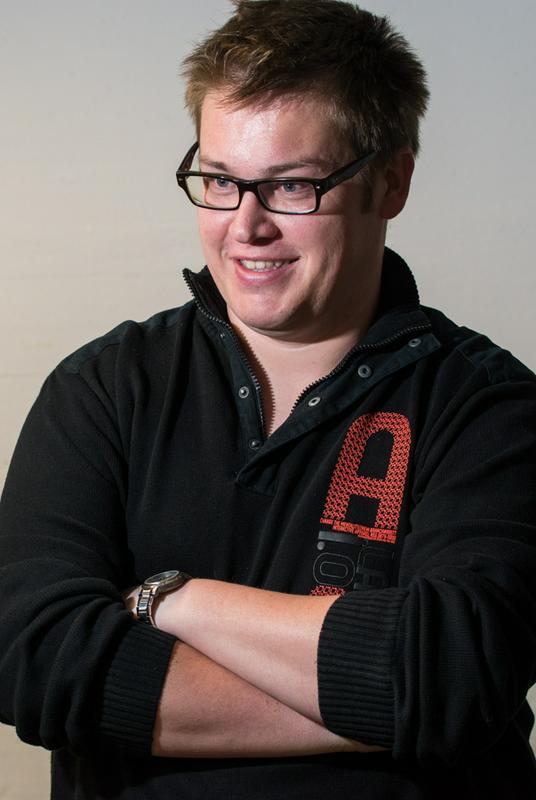
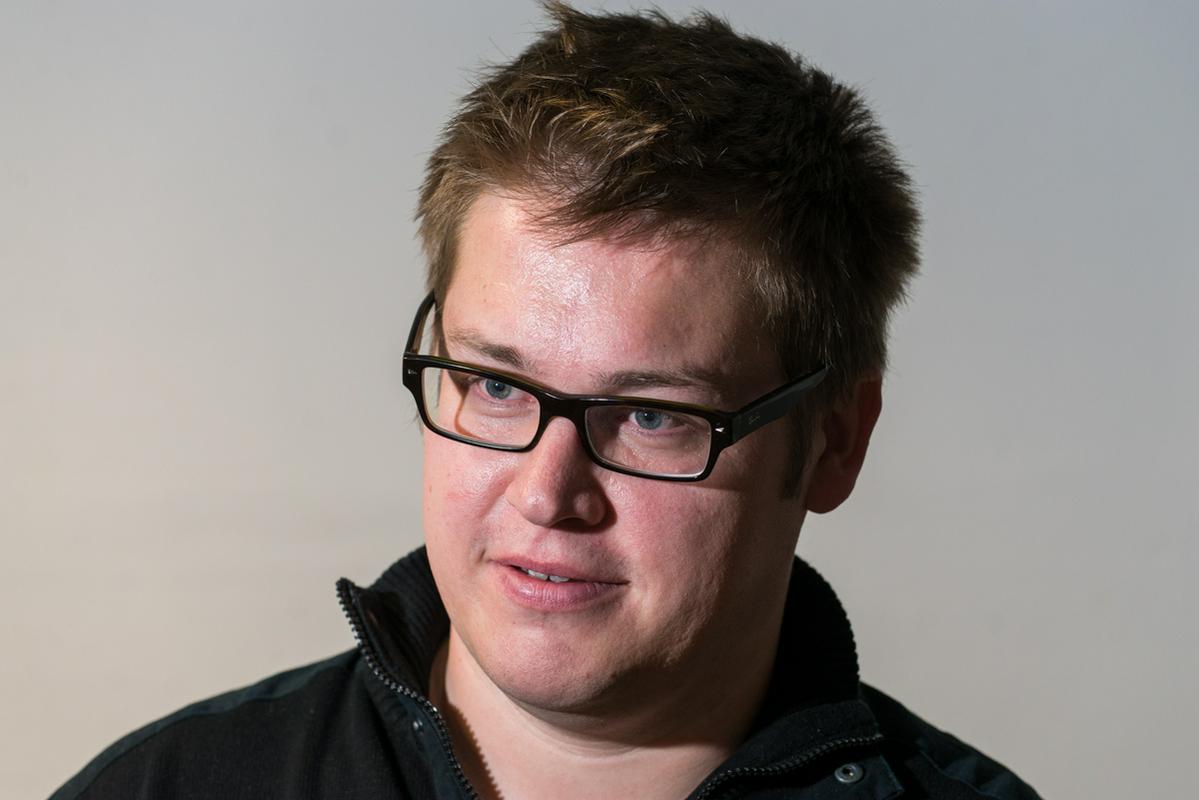
Last year, when Tina Maze ruled, I was flooded with questions regarding her achievements, while this year questions about ski jumps prevailed.
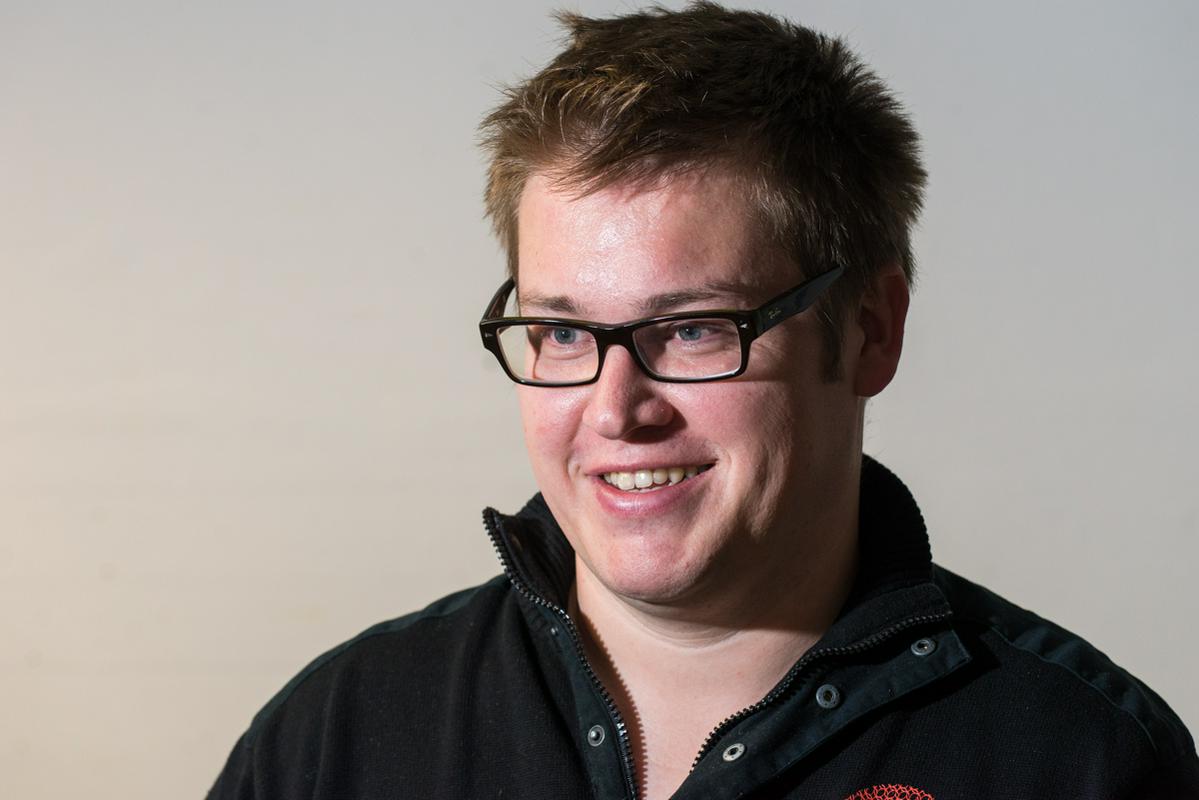

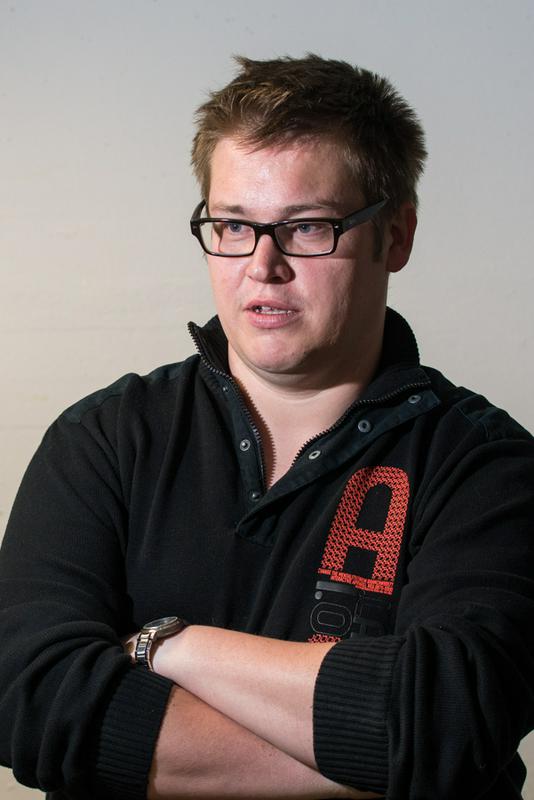
Some people consider snooker a pub sport, but for me it is a combination of poetry of movement, and mathematics in practice.
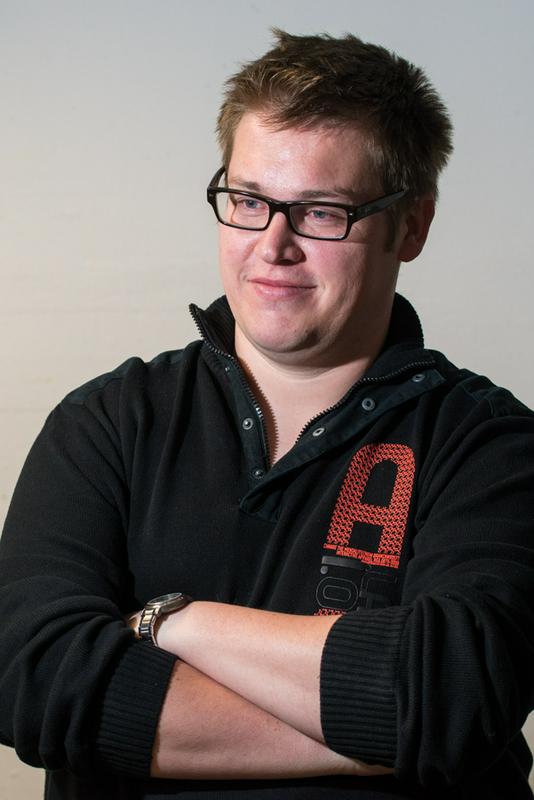
Slavko has been working as a sport journalist at Multimedia centre since June 2000. He became a sport enthusiast as a child, thanks to his father, and just like his father Slavko at first most enjoyed studying football scales. As he gained experience during years Slavko, who is by his colleagues considered a pleasant and quiet person, gained almost encyclopaedic knowledge on a number of sports. And when he talks about sport statistics, his enthusiasm is catching.
You must be the only sport journalist graduated from mathematic and psychology. How much of a mathematician can be found inside a psychologist, and how much psychologist inside a mathematician? And, finally, how much of both can be found inside a journalist?
That's a really complicated question. There is a lot of mathematics in psychology, as psychologists use several, and very in-depth data analysis. And once they arrive at a conclusion which could have implications in practice, they use a number of statistical methods.
Sport SOS is very popular with our readers. Where did that kind of presentation of sport statistic come from? How satisfied are you with the response, and the questions?
The project developed gradually. When we expanded from teletext to Internet, we journalists started writing authorial articles as well. Since I am enthralled with statistics, I started using a number of statistical data, as I've always considered that an added value, an icing on the cake. Readers liked it, and started sending me their questions. At first hardly any of these questions referred to statistics, mostly they were interested in the history of sport, or the background of certain events. I realized that if some of the readers showed their wish for knowledge by sending me questions, there must be an even larger potential number of readers who would respond if invited to cooperate. That's how it all started. In 2012 I invited readers in my blog to send questions about the topic of sport statistics they are interested in. I was certain the project would last only a couple of months, but the questions multiplied. In technical terms blog was not the best media for showing graphs and pictures, so when I realized the project would continue for some time I prepared a special subportal, in agreement with my superiors, dedicated specifically to such questions.
Previously I had prepared a number of one-time larger projects connected with statistics, which have all been included in Sport SOS. In 2009, when our football players qualified for the World Championship for the second time, I gathered and published the statistics of the Slovenian football national team. In 2011, at the 20th anniversary of the independence of Slovenia, I compiled sport statistics of most of the successes of the Slovenian athletes.
Which sport gets the most questions?
Football by far gets the most questions, but it also depends of the time of the year. In winter, winter sports are mostly discussed. Last year, when Tina Maze ruled, I was flooded with questions regarding her achievements, while this year questions about ski jumps prevailed. I also hint to the readers that during certain sport events the question should be connected with those sports. The last such event was Planica. Now the most welcome will be questions referring to the hockey World Championship, NBA and NHL leagues, and in summer I expect more questions about football, due to the World Championship.
Are there any questions you can't answer? And if so, why?
There are several reasons. The access to certain comprehensive data bases is simply impossible. And sometimes the data don't exist. Recently I received a very interesting question – a reader wanted to know the quickest way to conquer 1000 metres of difference in altitude. For example, would a skier be quicker in descending, or a mountain biker. The only way to find out would be an actual test.
However, sometimes you get some answers by accident. I was looking for a long time for a national team where all the players would come from the same club. I searched through a number of data basis, asked friends who work for statistic companies abroad, but to no avail. And then I got my answer when studying the origin of the term 'golden cup' – at the first international football match between England and Scotland, all the Scots came from the same team. I practically found a needle in a haystack! Sometime you need a bit of luck.
What's the longest time you spent on finding an answer?
Sometimes even one whole month (laughter), well of course in phases. You try to fill in the holes, and let's say spend two hours for one part, two hours for the next one, and the hours accumulate. Especially if your data is not well organised, or correctly entered, you can spend a lot of time searching for an answer.
They say it is always possible to 'bend' the numbers. Is there any case you might have tackled, but decided against it as you knew it would be open to manipulation. Is manipulation in numbers, and here I am not speaking of fixing the results of the matches, frequent in sport?
Of course it is possible. I can give you an actual example: today I am answering the question of Žan Košir, who in the jubilee 100th question asked which were the average placements of the Slovenian Olympic athletes. He placed 2nd, 3rd and 6th, therefore his average placement is 3.6. The most successful Slovenian Olympic athlete Leon Štukelj won six Olympic medals, but if we calculate his average placement in the games, it turns out his average placement was 17th place, therefore he was among the worse placed medal winners. Why? Because he performed also in disciplines where he was not competitive, and in some cases there were more than 100 competitors. In this case the statistics ruins his success. Today in some Olympic disciplines only 16 competitors participate, e.g. in rowing there is usually only 15 boats for each discipline. In this way manipulation is always a possibility. But I have no problems remaining objective.
It is similar with percentage – you can always project the trend which suits you, or you wish to present. This issue is perhaps even more topical in society, let's say when displaying economic indexes. You can consider one set of data, and next time another. Manipulation is possible, therefore you need to use common sense for interpretation.
In summer your column is moving from the web to TV, and will be a part of the programme during the football world championship. Any stage fright?
The colleagues from TV have noticed my project, and consider it has potential as a TV show. Therefore they invited me to answer one question a day during the world championship, as a part of their studio programme. Well, I must say there is a bit of stage fright, as working in front of a camera requires different virtues, therefore I will try to prepare very well. I would like to invite the readers to start sending their questions in reference to football, not necessarily in reference to the world championship. The addition to the web SOS will be the possibility to view video-material, and we will also prepare some interesting graphs.
Last year you received the award by the Statistic Society. For those of us who have known you for a longer time it was only a formal confirmation of the fact that you do excellent work, to which you are extremely dedicated, but probably this award opened many doors within the house, to people who hadn’t known you before?
Certainly. After the award also my journalist colleagues started addressing their questions to me, and then used the answers in their work. It is a kind of acknowledgment, and a reward for my work. I like it, but it is also useful for our media. MMC has a lot of good journalists, who write good articles and make good projects and deserve more attention.
Last year, when Tina Maze ruled, I was flooded with questions regarding her achievements, while this year questions about ski jumps prevailed.
Some people consider snooker a pub sport, but for me it is a combination of poetry of movement, and mathematics in practice.

































































